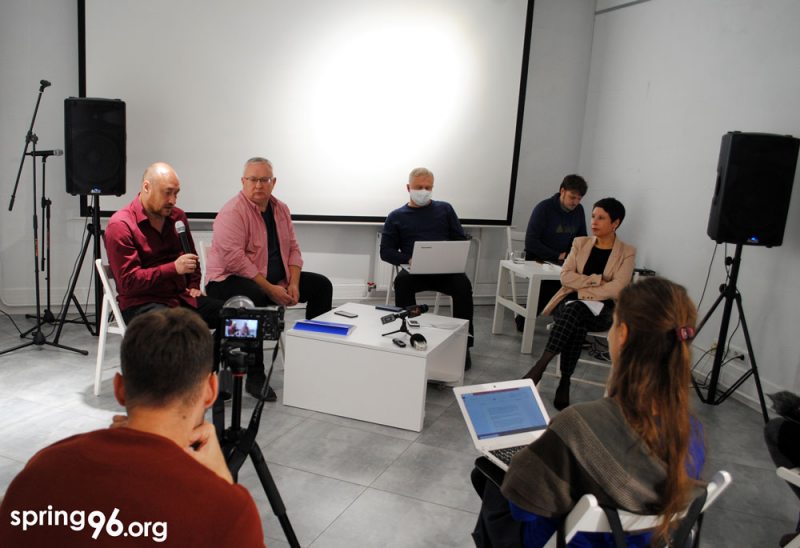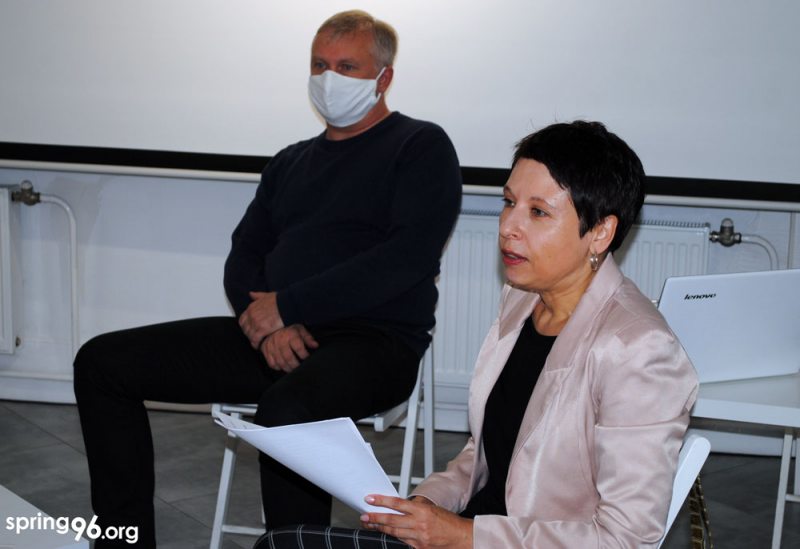
On Thursday, October 8, representatives of the Belarusian human rights coalition presented a report entitled “Belarus After Election”, which contains information about the human rights situation in Belarus in the post-election period. The experts focused on the rights to life, personal freedom and humane treatment, as well as freedom from torture. The report also touches on violations of the rights of journalists and children.
Earlier, the analytical work was submitted to the rapporteur appointed under the Moscow Mechanism of the OSCE.
Falsification of election results in many polling stations, as well as disproportionate violence against peaceful protesters, have led to a political crisis.
Human rights activists analyzed the information received from the victims who contacted Viasna and the BHC, as well as other data on the events of August 9-14 obtained from reliable sources, and concluded that law enforcement officers arbitrarily, without sufficient grounds and inappropriately used weapons - including against large numbers of people, women and children. Some weapons, including rubber bullets, were used against protesters for the first time in Belarus. Obviously, the actions were authorized by the government, which testifies to the violation by the Republic of Belarus of the right to life guaranteed by national and international standards.
“Obviously, the torture used against the detainees was a politically motivated punishment,” Valiantsin Stefanovich said during the presentation. “And, accordingly, the responsibility for this lies with the country's leadership and, in particular, the Interior Ministry.”

- Valiantsin Stefanovich (Viasna) speaking at the presentation of a human rights report "Belarus After Election". October 8, 2020
According to health care institutions, in Minsk alone, more than 1,240 participants in protests sought medical treatment. At least two protesters were killed by direct police action and one more died in detention. Human rights activists are convinced that criminal cases should be instituted to investigate the reports, including full-fledged investigations into murders, injuries and the use of riot control gear and weapons against protesters.
“Victims of disproportionate and illegal actions of police officers must be rehabilitated in their rights, receive effective remedies and compensation," said Valiantsin Stefanovich.
Viasna’s expert Pavel Sapelka spoke about the methodology of studying human rights violations. He said that the evidence was collected with the help of several sources, and in Minsk alone more than 500 reports of repressions were documented.
“The first victims contacted us on August 14," Pavel Sapelka said. "It contradicts the authorities' claims that people fantasized and turned to human rights activists under pressure from society and the press: no one at the time knew about the scale of the situation and would not have had time to write such well-arranged stories."
Thus, information obtained from the victims can and should be used for a comprehensive and impartial investigation of repression: it fully allows to find and punish the perpetrators.
After analyzing people's appeals, human rights activists came to the conclusion that the most severe types of punishment affected certain categories of people. Among the markers were white wristbands or ribbons, subscription to certain Telegram channels, as well as an unusual appearance.
More than 300 journalists have also been repressed because of their professional activities since August 9, as a continuation of the authorities' targeted policy of restricting information.
"Repressions against journalists were growing," Volha Siakhovich of Belarusian Association of Journalists said. "At first they were released immediately after detention and ID check. But now they are being tried."
Belarusian society has faced a number of problems in this regard: partial blocking of the Internet and certain websites, restrictions on the printing and distribution of independent publications and foreign media, and harassment of bloggers. All cases of harassment of journalists should be investigated and further pressure should be stopped.
Thus, it is clear that Belarus has had an unprecedented situation with human rights violations in the post-election period.
"After analyzing such cases, we can see that all the repressions were not isolated actions of specific officers, but a purposeful policy of the state towards certain categories of people," Aleh Hulak, Belarusian Helsinki Committee chairman, emphasizes. "That's why there are issues with investigating the cases of human rights violations: the state has grossly violated international and national agreements, and now it does not want to open cases and testify against itself."
But despite the current impunity of the system, it is essential that in certain criminal cases the statute of limitations is 10 years, and in relation to crimes against humanity it does not exist at all.
“We have little hope for power or the application of legal instruments at the national level," Stefanovich said. "That's why the Belarusian human rights community is working to launch international mechanisms."
In particular, this applies to the instruments of the OSCE and the UN, as well as the use of mechanisms of universal jurisdiction: no one will be able to avoid responsibility.





